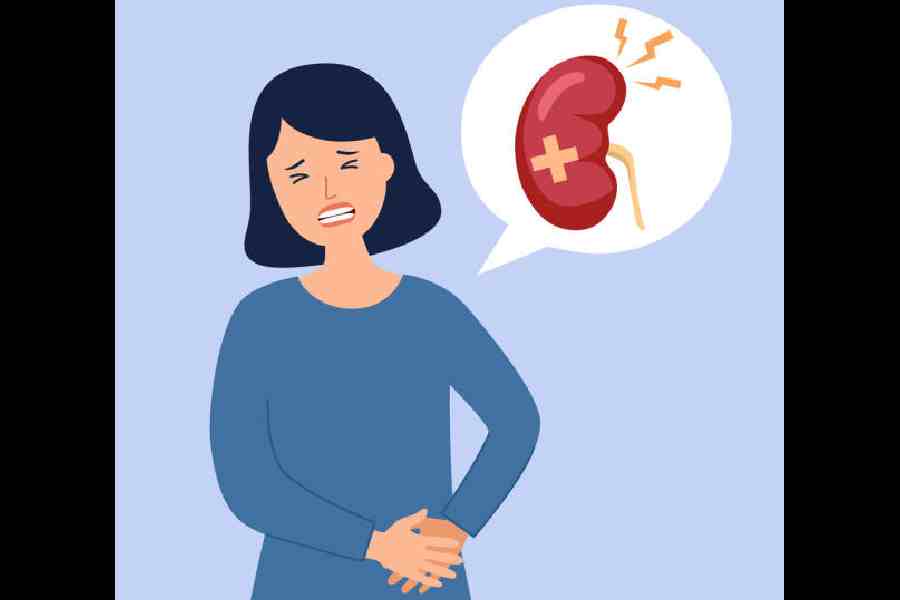When we think of stones, we remember gardens, roads or construction sites. We don’t expect stones in our bodies. However, stones can form at various sites in the body and cause problems.
Most people know about kidney and gallstones, but how many have heard of stones in the mouth?
The three salivary glands secrete saliva into the mouth to moisten it and help in digestion. Calcium can get deposited in the gland’s ducts and form stones. If they block the tubes that channel saliva, the gland becomes painful and swollen while eating and even when thinking of food. The stagnant saliva can cause the gland to get infected and cause fever and chills. You might even see a whitish stone under your tongue. These stones are usually not serious.
Salivary gland stones are rare but can occur in smokers, with malnutrition, dehydration and radiation. They might go away if you drink more water, gently massage the stone loose or suck on something sour. If it appears stuck, a dentist’s or surgeon’s help may be required.
Tonsil stones, also known as tonsilloliths, are small, hardened lumps of material that form in the tonsils. They are usually white or yellow in colour and can look like pebbles. Tonsil stones are made of hardened minerals, food debris and bacteria or fungi. They are not harmful and may not need to be treated. However, they can cause bad breath, sore throat and discomfort when swallowing. They can be removed by pressing with a cotton swab.
The commonest site for stones is the urinary tract — the kidneys, ureters or bladder. Kidney stones can form in one or both kidneys. If the stones are small, they may not cause any symptoms. Larger stones can change their position or obstruct a part of the urinary tract and cause severe pain. This pain is usually localised in the abdomen or upper back. It is intermittent and radiates to the lower abdomen. The urine may be highly coloured or blood-stained, and there may be frequency and urgency. A stone can get stuck in one of the ureters. This can cause back pressure and cause the kidneys to swell up. Infection can occur in the stagnant urine, causing fever and chills.
Stones are diagnosed with X-rays — which may not pick up some stones — ultrasound and CT scan.
Treatment involves drinking plenty of water, diuretics to flush out the stone, and painkillers. If this does not work, laser treatment can break up the stones. Surgery may ocassionally be required.
Sometimes, patients develop multiple stones called microliths in one or both kidneys. These are usually less than 3mm in size. If the patient drinks plenty of water, they may pass out with the urine.
To prevent kidney stones, drink 3-4 litres of water a day and avoid a high-salt diet. Also, check and treat elevated uric acid levels as this can cause uric acid stones.
The other common site for stones is the gall bladder, which is situated on the right side of the abdomen. It collects bile formed by the liver. Gallstones are hard and pebble-like. They are usually made up of cholesterol or bilirubin. Gallstones can range in size from a grain of sand to a golf ball. The gall bladder can contain one large stone, hundreds of tiny stones, or both small and large stones. Their formation does not depend on the cholesterol level in the blood.
Gallstones may not cause any symptoms and may be picked up incidentally when an abdomen ultrasound is taken for some other reason. They can cause pain, especially if they get lodged in the bile duct. The pain may last a few hours. It may be in the abdomen’s centre or even radiate to the right shoulder. There may be nausea, vomiting and fever. Gallstones may predispose to gallbladder cancer.
Gallstones need to be surgically removed if they cause symptoms like fever, pain or jaundice.
To prevent gallstones, don’t skip meals and make sure you eat on time. Also, exercise regularly and maintain an ideal body weight.
The writer has a family practice at Vellore and is the author of Staying Healthy in Modern India. If you have any questions on health issues please write to yourhealthgm@yahoo.co.in










